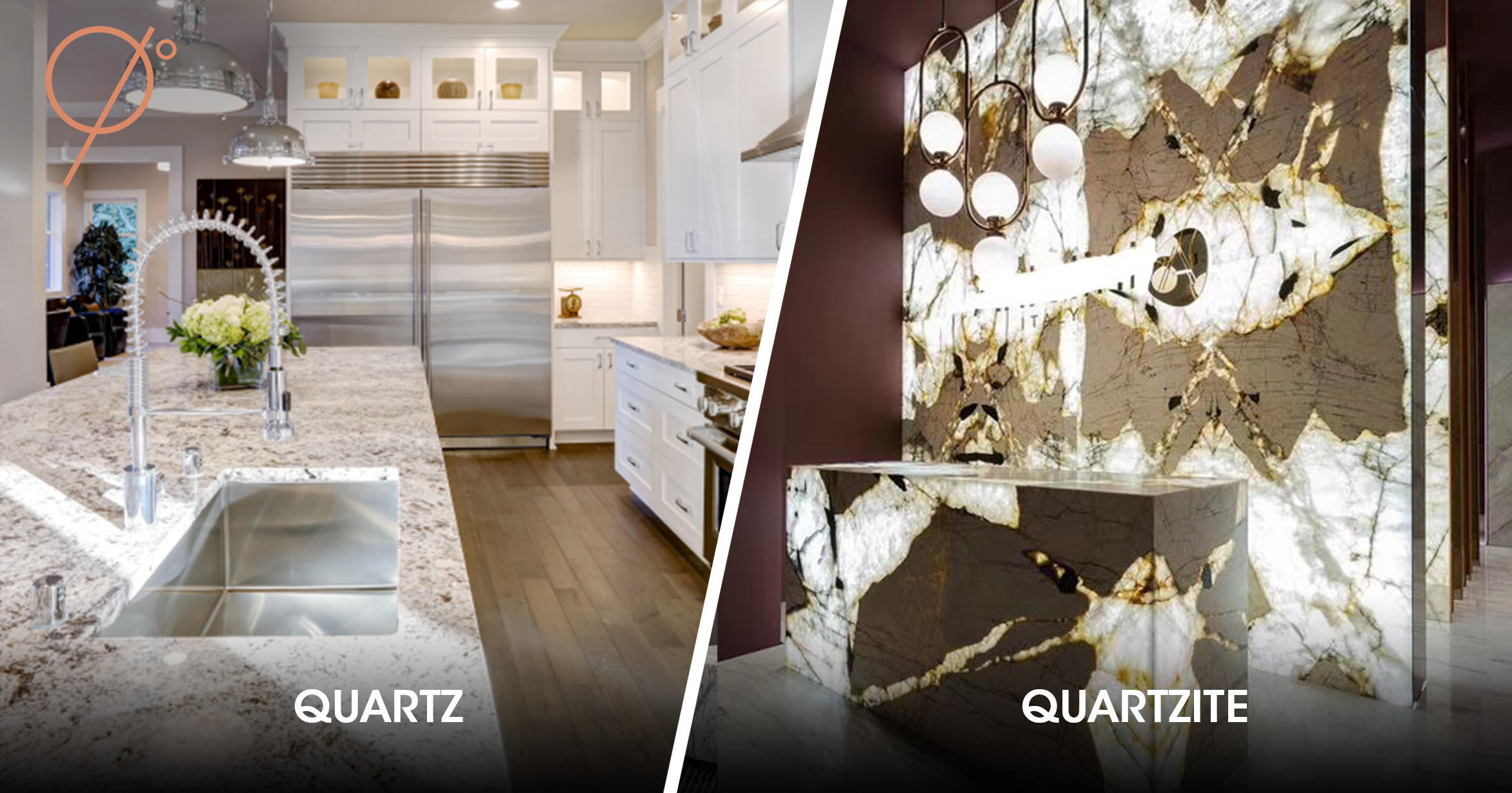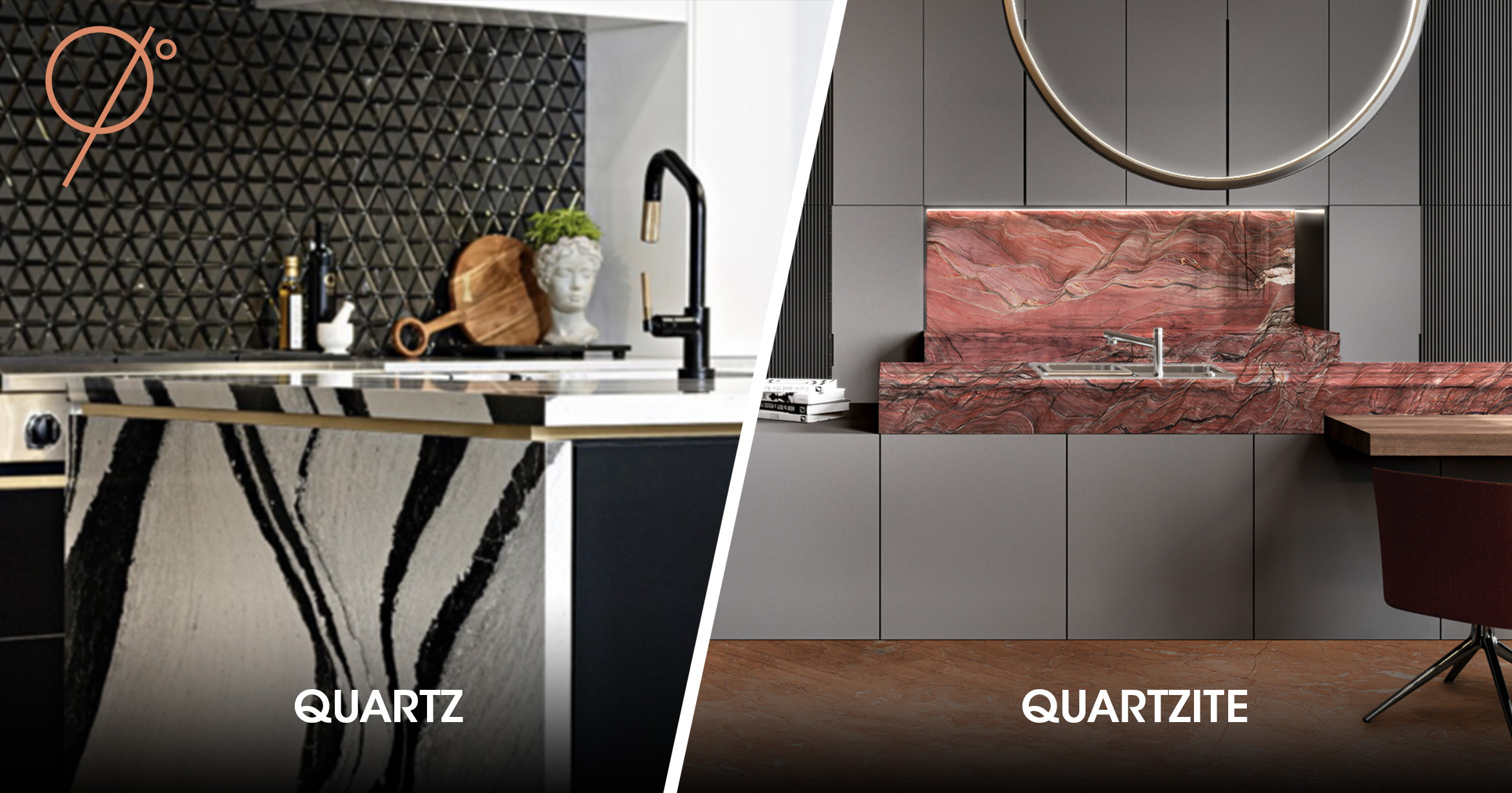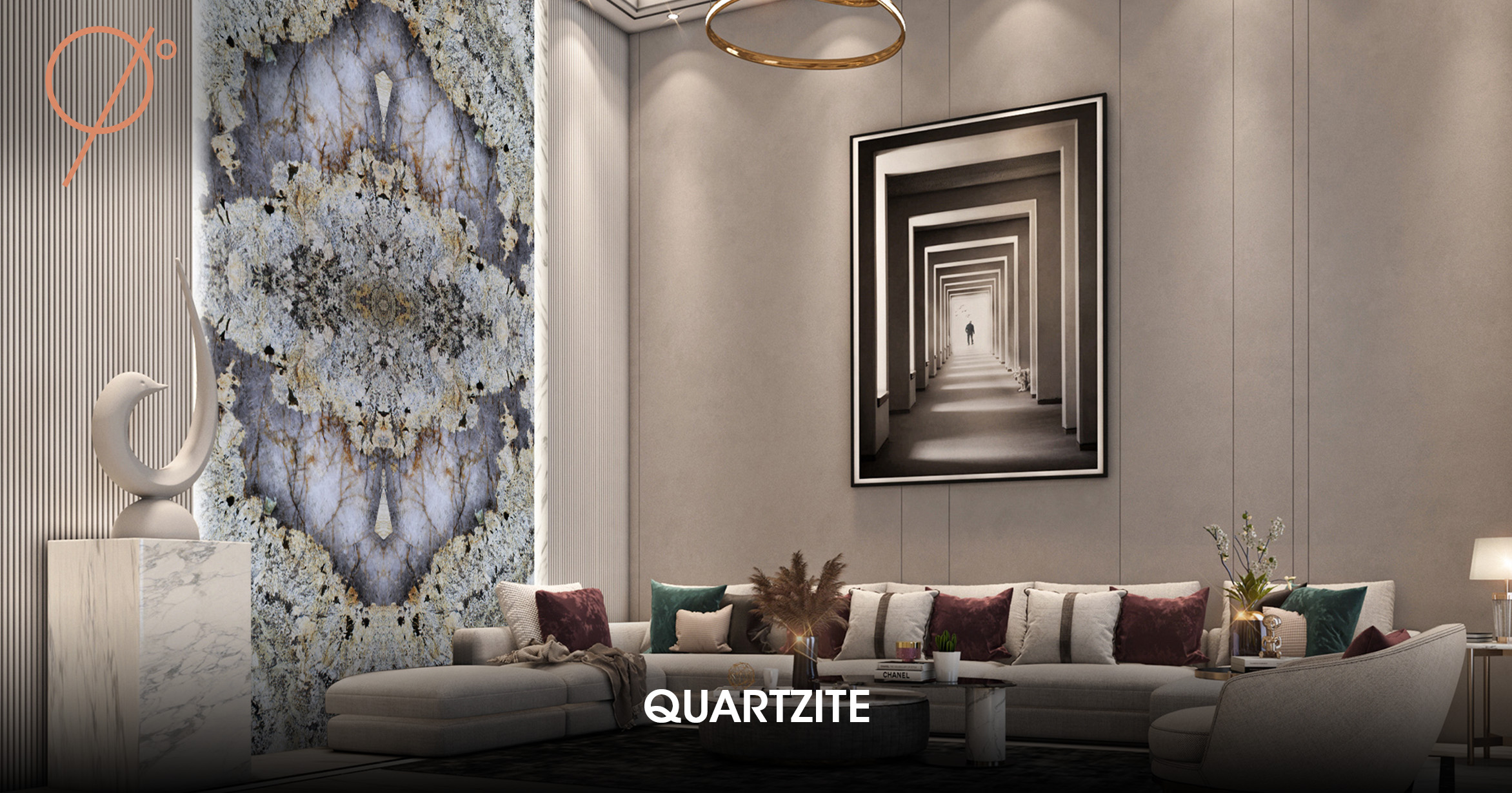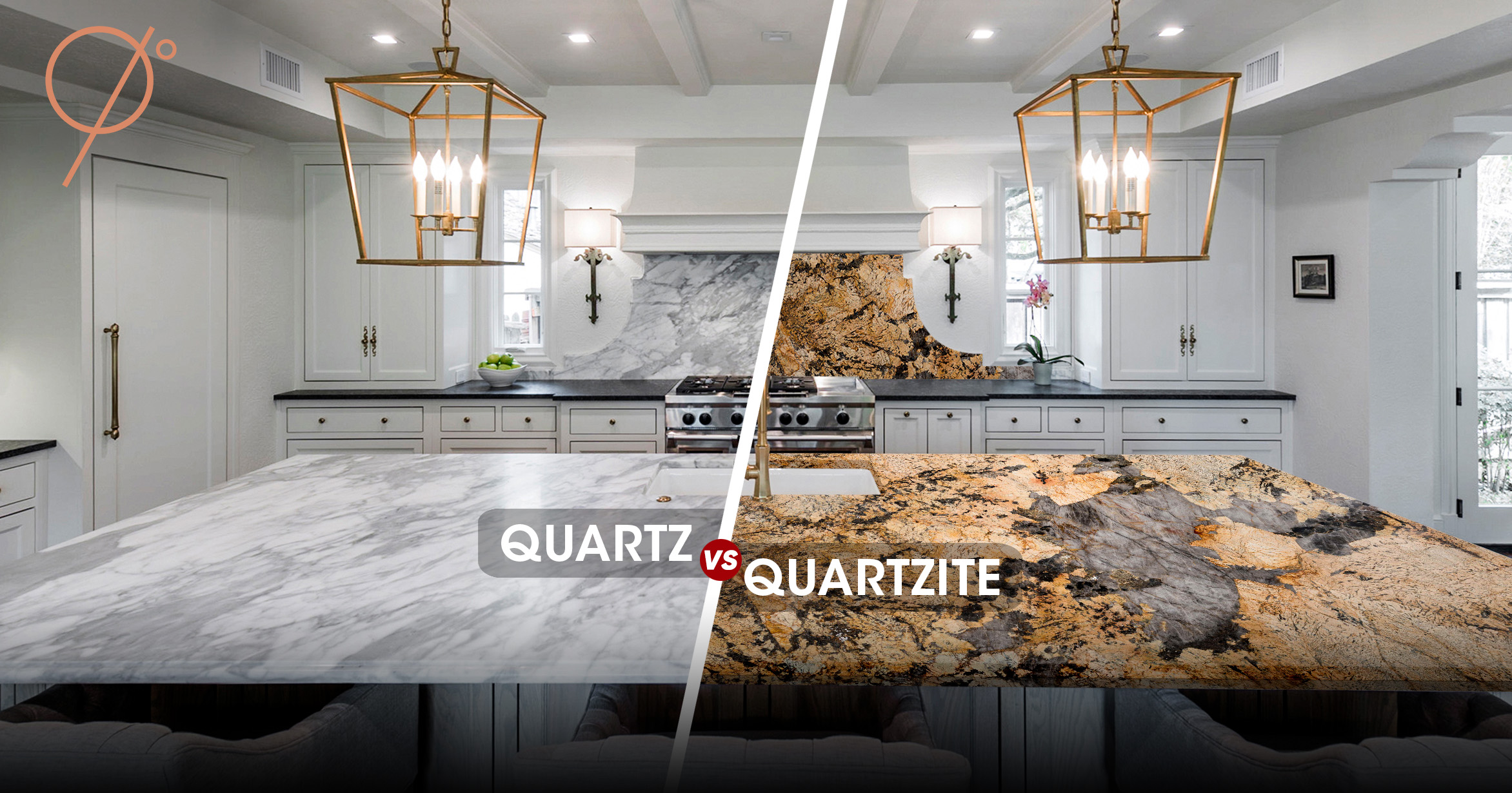The similarity in name causes a great deal of confusion, but quartz and quartzite are as distinct as they get.
While both the stones are now common in architecture, decoration and interior design, the biggest difference between the two materials is that quartz is a man-made material, while quartzite is a completely natural stone.
What is the difference between quartz and quartzite?
Origin
A quartzite slab begins as sandstone, which under a natural process of heat and pressure is fused with sparkly quartz crystals and other minerals.
It typically comes in shades of white or light grey, but minerals in the stone can lend pink, gold, or reddish-brown hues.
A quartz slab – on the other hand – is engineered with the same quartz crystals found in quartzite, but a man-made process binds the crystal with resins, pigments, and other materials such as bits of glass. This process results in a somewhat durable, non-porous material that comes in a wide variety of colours and designs.

Aesthetics
Besides the composition, the aesthetic differences are quite striking as well. Quartzite combines the delicate veining patterns of marble with the rainbow hues and durability of granite. Additionally, quartzite can be backlit, enhancing the ambience of any space with an ethereal glow. Those seeking a natural look in a versatile material prefer a quartzite countertop or wall highlight in their home.
Quartz on the other hand, can be made to look like any stone, and is offered in many different shades and patterns. If you have a specific colour or pattern in mind, a quartz countertop is probably a better choice for your home.
Maintenance and care
Quartz and quartzite vary greatly in the care routine they require. Quartz needs minimal care even in its short lifetime. But quartzite requires regular sealing every year or so. However, you need to clean away spills and dirt as soon as possible to ensure a long life.
Durability
The resin binding process leaves no gaps in the slabs, making quartz a hard surface that is relatively non-porous, and resistant to chipping or scratching. But it is not resistant to heat or household chemicals. Moreover, since its colours are artificially added, it tends to fade with time. Polishing the slab won’t restore its original colour or shine either.
On the other hand, well-processed quartzite is a naturally hard, non-porous stone, resistant to chemical staining (if sealed well) even in a heavy use area such as the kitchen. Quartzite is somewhat tolerant to heat, and its vibrant beauty doesn’t fade with time. Even if the slab dulls with heavy traffic, a quick buffing or polish will restore its natural shine, making it an evergreen choice for your home.

Area of use
Quartz slabs mostly find application in countertops and table tops. Since it is manufactured, most people prefer to get it custom made for certain applications where area of use is relatively small.
On the contrary, quartzite goes beyond countertops, kitchen islands and vanities. It is not unusual for vibrant quartzites to be used as wall highlights, exterior facade and even flooring in high traffic areas like living rooms.
Advantages of quartzite over quartz:
1. Ease of maintenance
Quartzite maintains its colour and shine with a little care but quartz fades over time.
2. Naturally beautiful and strong
Quartzite is naturally hard (7-8 on Mohs scale), and the quality of processing at Ninety Degree Stone makes it much stronger than quartz.
3. Heat and chemical resistant
Quartzite is tolerant to heat and common household spills. Quartz, on the other hand, stains relatively easily and doesn’t handle heat very well.
4. Highly durable
Quartzite can be used in both interior and exterior design, owing to its high durability.
5. Surface finishes and polish
Quartzite is available in a wide range of surface finishes at Ninety Degree Stone. You can even opt for the gleaming polish which restores the natural shine even after decades of use.

Which is better: Quartz or Quartzite?
Typically, it depends upon your needs, preferences and area of application. Quartz is a better choice when longevity is not necessary, but custom colours and designs are sought at a somewhat lower cost. Quartzite is the better choice for those who want a long-lasting, versatile natural stone for larger areas. It may be costly but it lasts a lifetime.
For more information, contact us or book a personalized tour with our Stone Experts.


